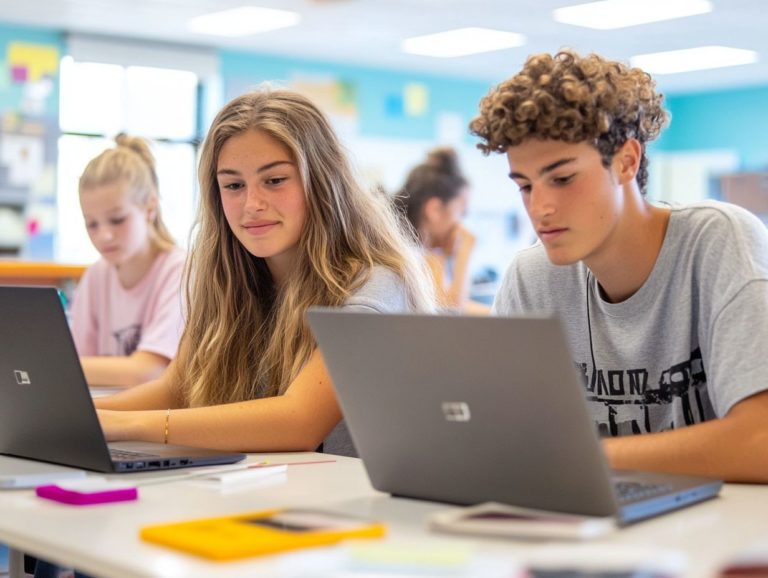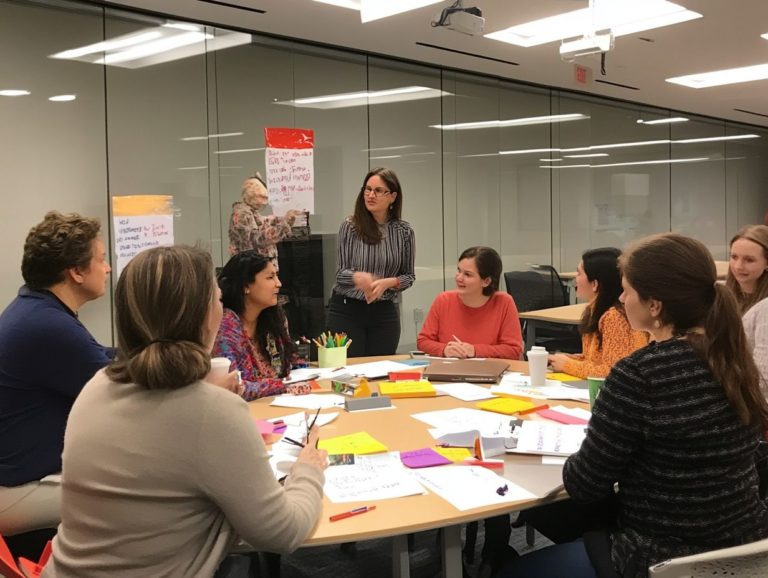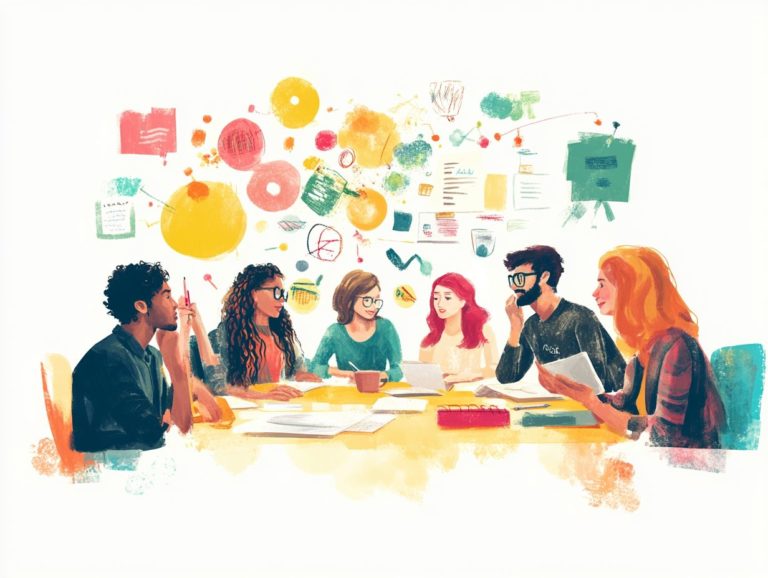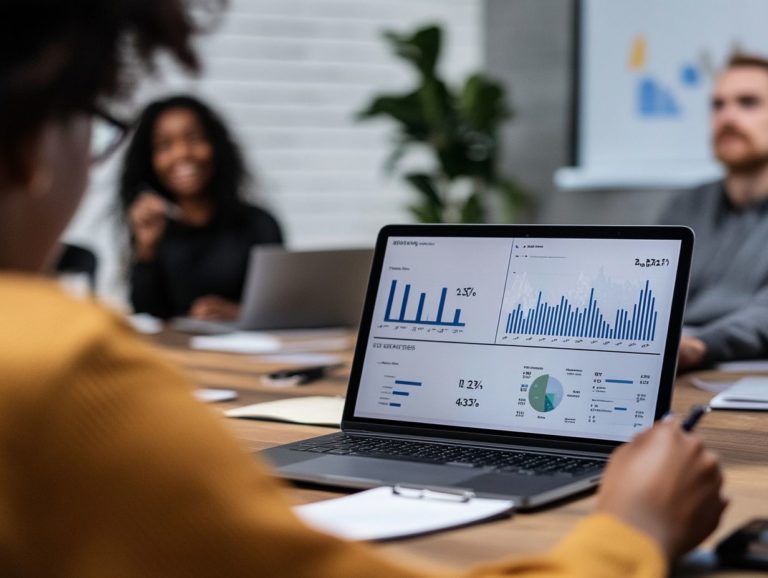How to Facilitate Effective Skill Enhancement Sessions
Ready to boost your career? Skill enhancement sessions can help you thrive. They are vital for your personal and professional growth, offering a structured approach to elevate your competencies.
This article delves into the essential elements of designing and facilitating these sessions. It guides you through the process of identifying the skills that require development while assessing both individual and team needs.
You ll discover strategies for engaging participants effectively, planning sessions that resonate, and methods for evaluating success. It emphasizes the importance of continuous development and the resources that support your improvement.
Explore with us as you uncover ways to maximize the impact of your skill enhancement efforts.
Contents
- Key Takeaways:
- Understanding Skill Enhancement Sessions
- Identifying the Skills to Enhance
- Designing an Effective Session Plan
- Facilitating the Session
- Evaluating the Success of the Session
- Continuing Skill Development
- Frequently Asked Questions
- 1. What are the key elements of a successful skill enhancement session?
- 2. How can I ensure that my participants are actively engaged during the session?
- 3. How can I select the best materials for my session?
- 4. How do I handle difficult participants during the session?
- 5. How can I measure the effectiveness of the skill enhancement session?
- 6. Can skill enhancement sessions be customized for different industries or job roles?
Key Takeaways:
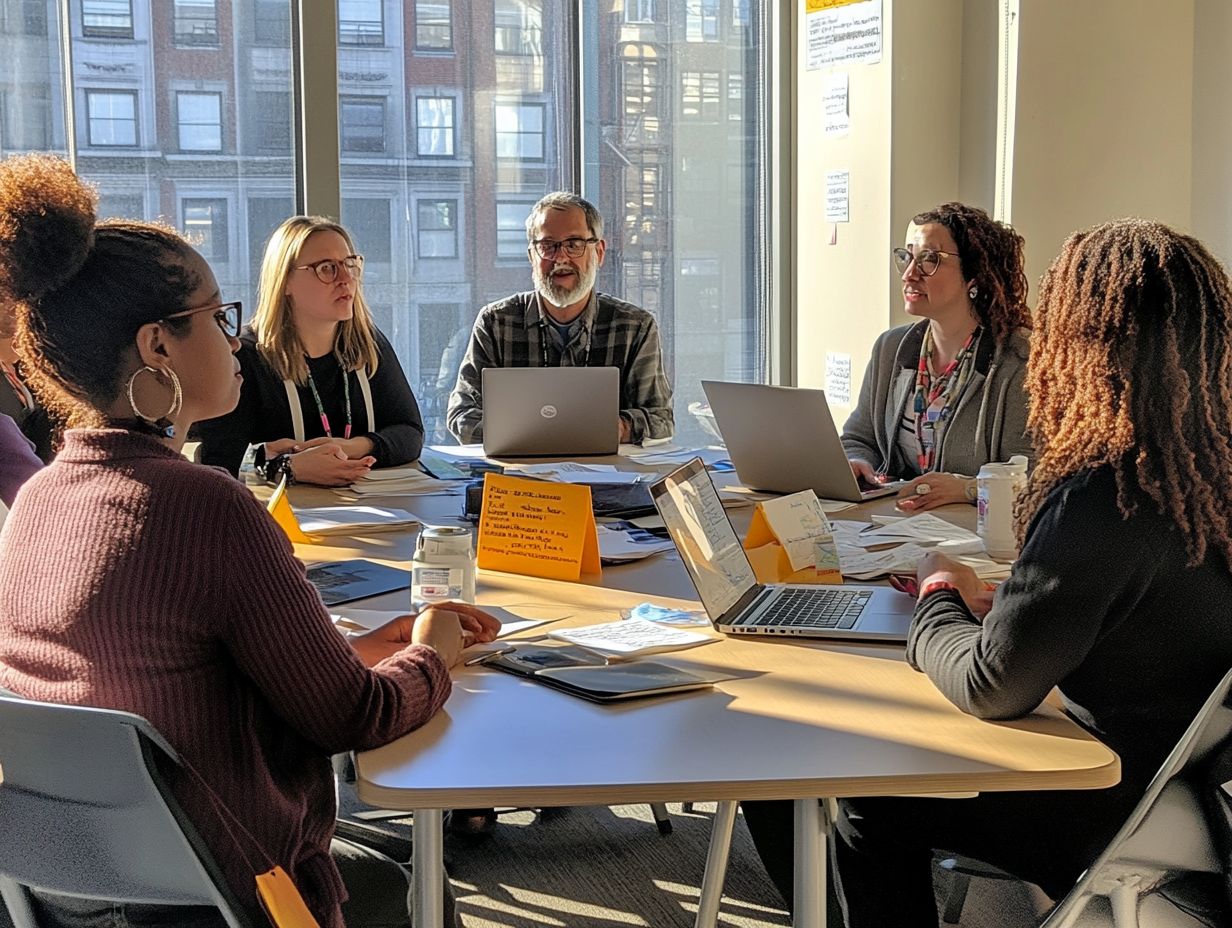
- Assess individual and team needs before designing a skill enhancement session to ensure it meets their specific needs and goals.
- Include key components and use effective strategies when designing a session plan to maximize engagement and achieve desired outcomes.
- Evaluate the success of the session by measuring progress and gathering feedback. Continue to support ongoing skill development through follow-up actions and resources.
Understanding Skill Enhancement Sessions
Skill enhancement sessions play a crucial role in cultivating a culture of continuous learning within your organization. To maximize their impact, it’s important to understand how to integrate skill enhancement into daily work. They aim to bridge knowledge gaps.
These sessions equip you with the adaptive skills essential for navigating today s rapidly evolving digital landscape. They typically include structured training programs, mentorship initiatives, and effective feedback mechanisms that align with both organizational goals and your personal career development aspirations.
This approach not only propels your professional growth but also enhances employee satisfaction overall.
Identifying the Skills to Enhance
Identifying the right skills to enhance is essential for effective talent management. You can achieve this through a comprehensive skills gap analysis, which means looking at what skills people have versus what they need to do their jobs well.
Assessing Individual and Team Needs
Assessing individual and team needs is vital. This helps target specific improvement areas through insightful data analysis and employee feedback.
By employing a combination of surveys to gather insights directly from your team members, you can gain a clearer understanding of the specific skills that may be lacking within your ranks. Performance metrics also prove invaluable, as they measure actual outputs against desired outcomes, effectively highlighting gaps in expertise.
Conducting structured feedback sessions fosters open dialogue, encouraging your team to share their thoughts on existing challenges and potential development areas. Together, these techniques create a comprehensive skills gap analysis, enabling you to design targeted training programs that align seamlessly with both your organizational goals and the aspirations of your employees.
Designing an Effective Session Plan
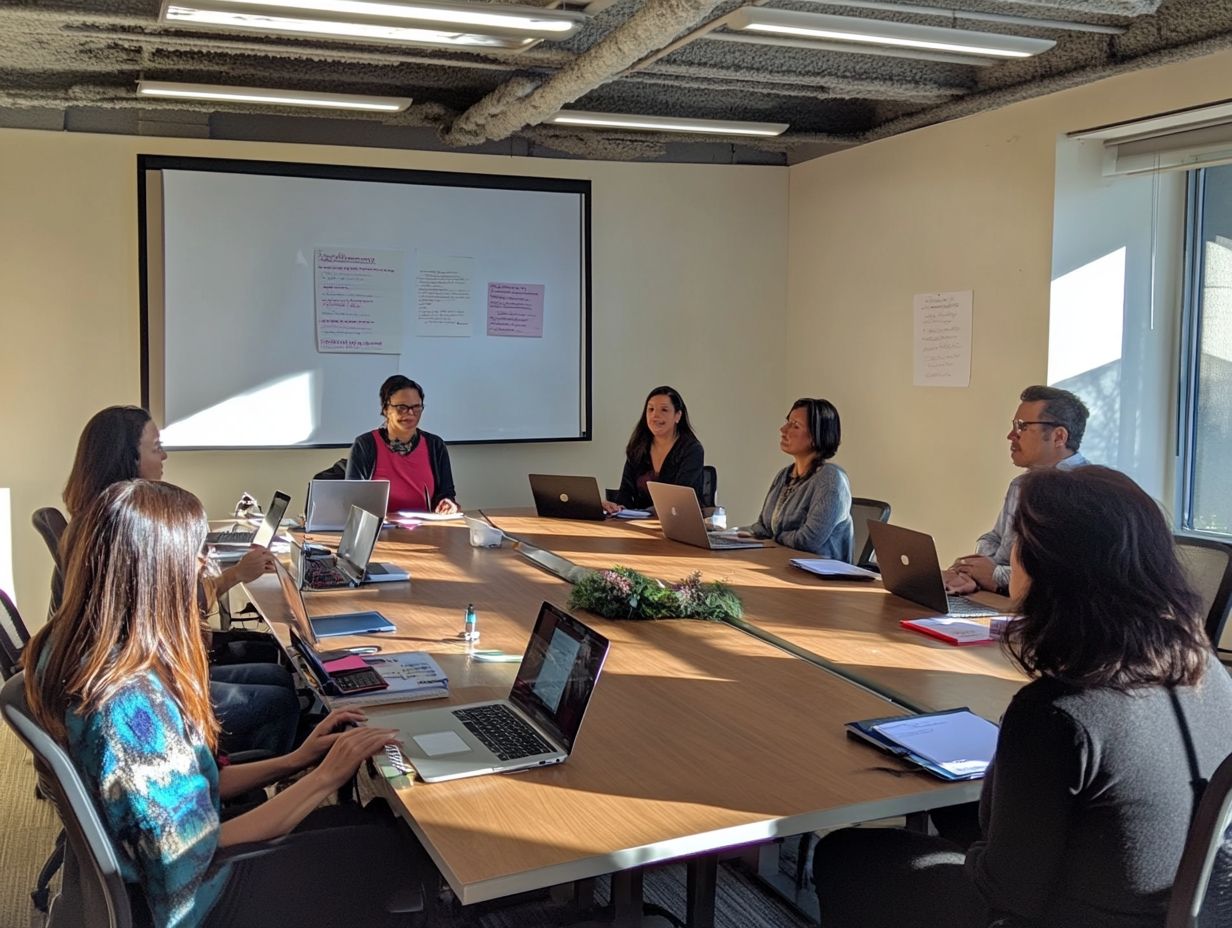
Crafting an effective session plan is vital for successful skill enhancement. It demands a clear grasp of your objectives and the methodologies that will best serve your learners, including understanding how to facilitate virtual learning sessions.
Consider incorporating interactive videos and technology-driven approaches that truly resonate with them, ensuring an engaging and impactful experience.
Key Components and Strategies
Key components and strategies of an effective session plan include a well-defined skill strategy, structured agendas, and approaches that promote employee engagement, along with understanding how to measure skill enhancement effectiveness to foster a culture of innovation.
To create a comprehensive session plan, outline clear objectives that match both learners’ needs and your organization’s goals. Choosing the right methods for content delivery like interactive workshops, engaging discussions, or dynamic multimedia presentations is key to your success!
Assessment strategies are essential for measuring understanding and progress. Incorporate ongoing tests that help you understand your progress, like quizzes or practical applications, which provide immediate feedback. By integrating these elements, you create a cohesive framework that drives productivity and nurtures a growth-oriented environment.
Facilitating the Session
Facilitating a skill enhancement session effectively relies on your ability to cultivate participation and engagement among attendees. To achieve this, consider implementing the best practices for skill enhancement programs and use group facilitation techniques to create an inclusive atmosphere that fosters collaboration and clarity throughout the group processes.
Tips for Engaging and Motivating Participants
To truly engage and motivate participants during a skill enhancement session, employ innovative collaboration techniques while ensuring high levels of participation and enthusiasm.
One effective way to achieve this is by integrating interactive activities, like group discussions or hands-on exercises, that encourage participants to actively contribute and share their insights. Recognizing individual contributions through shout-outs or small rewards can significantly foster a sense of community and prompt further involvement.
Create a welcoming atmosphere where participants feel safe to express their ideas. Set ground rules that promote respect and openness. Start with icebreakers to help participants feel comfortable, making the session dynamic and enjoyable.
Evaluating the Success of the Session
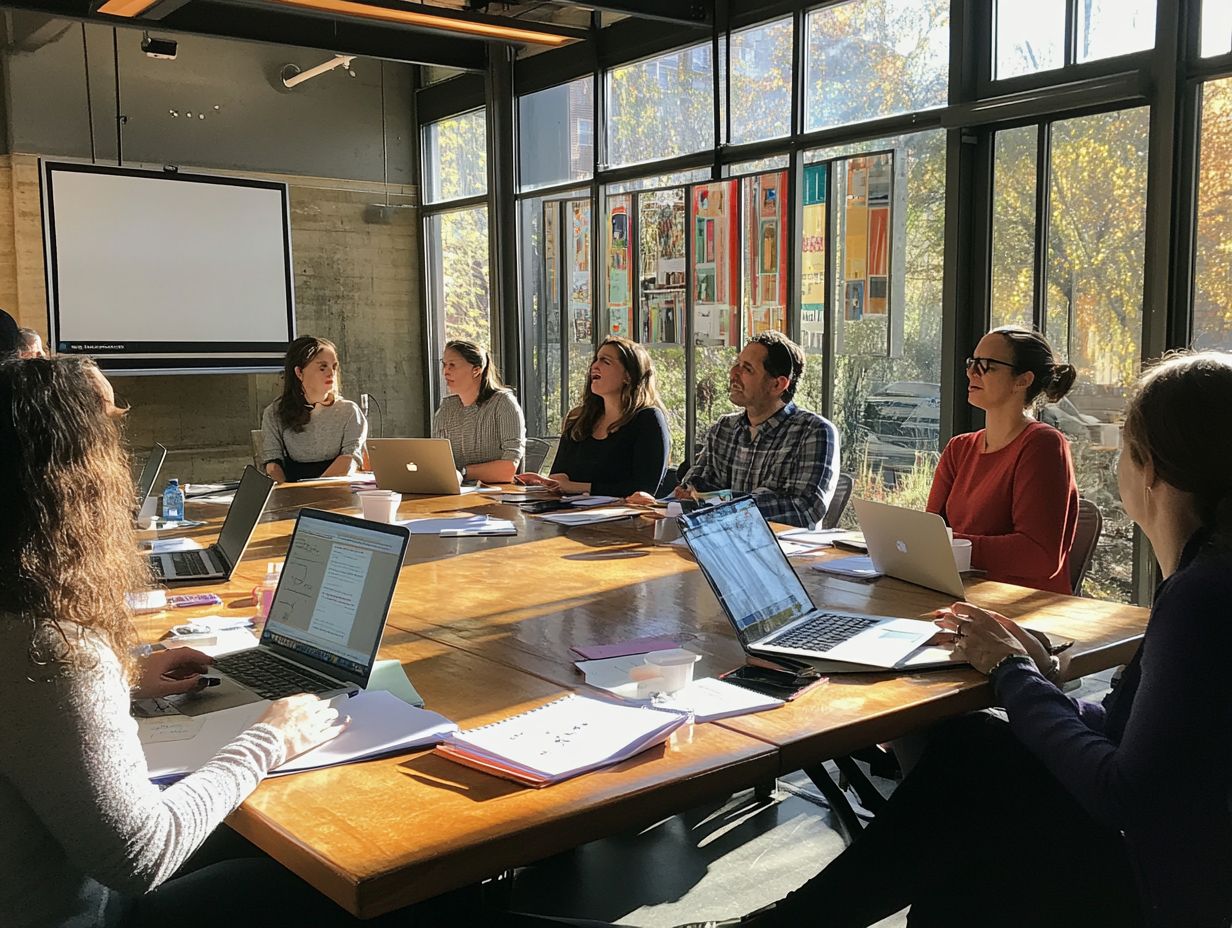
Evaluating the success of a skill enhancement session requires measuring progress using a range of metrics while gathering employee feedback.
This approach helps you determine the effectiveness of the training and its influence on performance improvement.
Measuring Progress and Gathering Feedback
Measuring your progress and gathering feedback are crucial elements in evaluating skill enhancement sessions. They offer valuable insights into your satisfaction and the effectiveness of coaching programs.
Employers often adopt a range of methods to achieve this, including comprehensive surveys that seek your honest opinions about your experiences and how the training impacts your daily responsibilities. Assessment tools, like quizzes and practical evaluations, provide quantitative data on your skill acquisition. Performance metrics, such as productivity rates and engagement levels, serve as additional indicators to help organizations understand how well their initiatives align with your needs and broader organizational goals.
By implementing these strategies, organizations can foster a more responsive and supportive learning environment tailored to your growth.
Continuing Skill Development
Continuing your skill development after those initial training sessions is crucial for your sustained growth as an employee. This journey demands well-defined follow-up actions and easy access to resources that support your ongoing improvement.
Consider integrating e-learning solutions and mentorship programs that reinforce what you ve learned, ensuring that you re always evolving and enhancing your expertise.
Are you ready to make your sessions more interactive?
Follow-up Actions and Resources for Ongoing Improvement
Implementing effective follow-up actions and offering resources for ongoing improvement, such as mentorship programs and online learning courses that you can take at your own pace, is crucial for building a habit of continuous learning and skill enhancement.
By establishing structured mentorship initiatives, you can pair experienced professionals with emerging talent. This fosters an environment where knowledge flows freely and practical skills are refined.
Integrating e-learning platforms allows you access to valuable information, making it easier to customize your learning journey to meet your unique needs.
Regular check-ins and feedback can supercharge your development! This ensures that you stay engaged and motivated as you progress.
Ultimately, these strategies not only elevate your individual capabilities but also contribute to a more competent and agile workforce, better equipped to navigate the ever-evolving demands of your industry.
Frequently Asked Questions
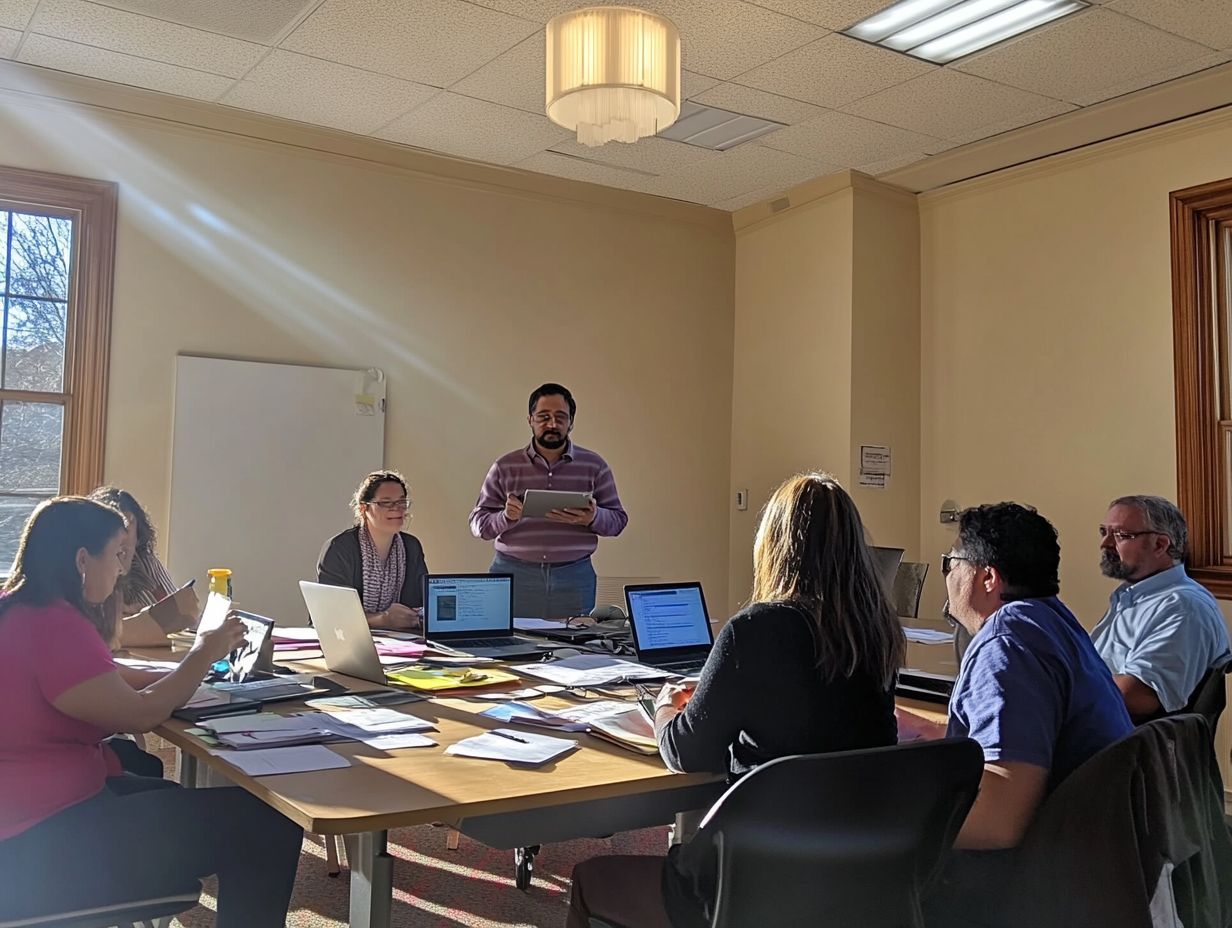
1. What are the key elements of a successful skill enhancement session?
Key elements include identifying clear learning objectives, creating an engaging environment, providing relevant examples, and incorporating opportunities for practice and feedback.
2. How can I ensure that my participants are actively engaged during the session?
To ensure active engagement, incorporate interactive activities such as role-playing, group discussions, and real-life scenarios. Encourage open communication and participation from all attendees.
3. How can I select the best materials for my session?
Materials should align with learning objectives and suit participants’ skill levels. Gathering feedback beforehand can help you understand their learning preferences.
4. How do I handle difficult participants during the session?
Difficult participants can disrupt the session. It’s important to address disruptive behavior calmly and directly, redirecting the focus back to the learning objectives.
5. How can I measure the effectiveness of the skill enhancement session?
Measure effectiveness through pre and post-session assessments or surveys. Observing participants’ application of newly learned skills can also indicate effectiveness.
6. Can skill enhancement sessions be customized for different industries or job roles?
Absolutely! Skill enhancement sessions should be customized to meet the specific needs of different industries or job roles, tailoring examples and activities to be relevant to participants’ work environments.


